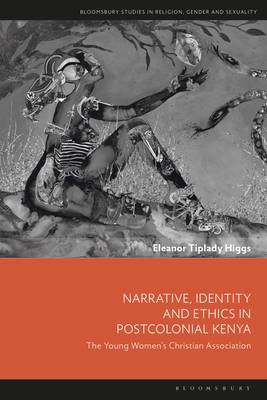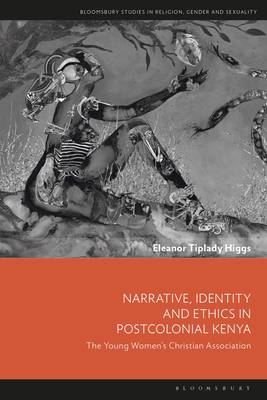
- Afhalen na 1 uur in een winkel met voorraad
- Gratis thuislevering in België vanaf € 30
- Ruim aanbod met 7 miljoen producten
- Afhalen na 1 uur in een winkel met voorraad
- Gratis thuislevering in België vanaf € 30
- Ruim aanbod met 7 miljoen producten
Zoeken
Narrative, Identity and Ethics in Postcolonial Kenya
The Young Women's Christian Association
Eleanor Tiplady Higgs
€ 69,45
+ 138 punten
Uitvoering
Omschrijving
Can a Christian organization with colonial roots work towards reproductive justice for Kenyan women and resist sexist interpretations of Christianity? How does a women's organization in Africa navigate controversial ethical dilemmas, while dealing with the pressures of imperialism in international development?
Based on a case study of the Young Women's Christian Association (YWCA) in Kenya, this book explores the answers to these questions. It also introduces a theoretical framework drawn from postcolonial feminist critique, narrative identity theory and the work of the Circle of Concerned African Women Theologians: 'everyday Christian ethics'. The book evaluates the theory's implications as a cross-disciplinary theme in feminist studies of religion and theology. Eleanor Tiplady Higgs argues that Kenya YWCA's narratives of its Christian history and constitution sustain a link between its ethical perspective and its identity. The ethical insights that emerge from these practices proclaim the relevance of the value of 'fulfilled lives', as prescribed in the New Testament, for Christian women's experiences of reproductive injustice.Specificaties
Betrokkenen
- Auteur(s):
- Uitgeverij:
Inhoud
- Aantal bladzijden:
- 248
- Taal:
- Engels
- Reeks:
Eigenschappen
- Productcode (EAN):
- 9781350247956
- Verschijningsdatum:
- 26/01/2023
- Uitvoering:
- Paperback
- Formaat:
- Trade paperback (VS)
- Afmetingen:
- 156 mm x 234 mm
- Gewicht:
- 353 g

Alleen bij Standaard Boekhandel
+ 138 punten op je klantenkaart van Standaard Boekhandel
Beoordelingen
We publiceren alleen reviews die voldoen aan de voorwaarden voor reviews. Bekijk onze voorwaarden voor reviews.







